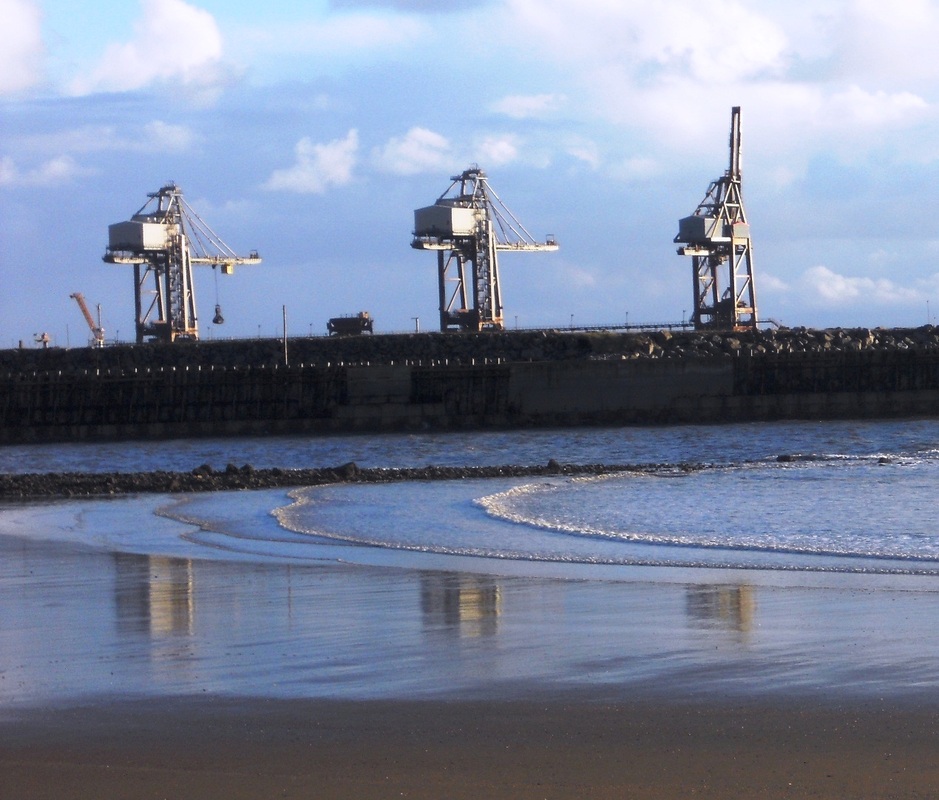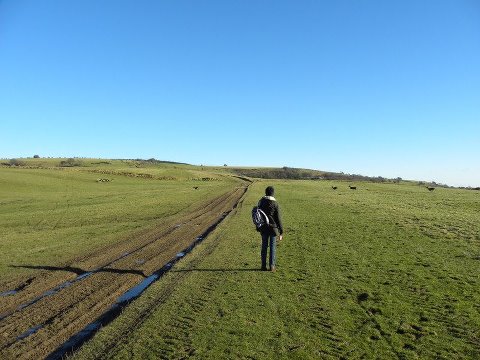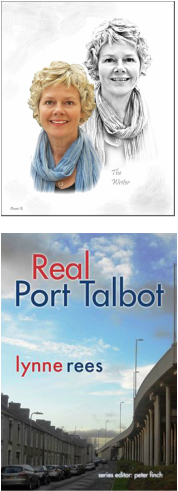But both horizons are more than just visual enjoyment: they link me to my past. The cranes are Dad's years at the Steel Company of Wales, and later British Steel, and all the memories associated with those years. His night shifts, the smell of his donkey jacket, even Vesta's Beef Curry and Rice, that slice of the exotic that penetrated our Sandfields Estate life in the 1960s, reserved as a quick meal for Dad which he'd eat on a stool in front of the TV.
What links to your past arise like sweet ghosts when you stand on the Prom and stare at the line that separates sea from sky?
Horizons can be smaller of course: they can be how far we can see to the end of our street. The curved L of Chrome Avenue is imprinted on my memory from the walk to and from Tirmorfa School between 1963 and 1969. The low brick walls the council built, fracturing my ankle from running with one foot on the kerb and one foot in the gutter. And the drains we feared would give us Scarlet Fever!
In her poem, 'Community', (The Forgotten Country, Gomer Press 1977), Port Talbot author Sally Roberts Jones talks about 'a death in the street' and how 'We are less by that much'. Our horizons change as much with the loss of people as the losses and gains in our natural, urban and industrial landscapes.
Look around you. Notice your physical horizons: land and sea, the road you live on, the people in your life. What anchors you to them? Talk about them. Let's celebrate our connections, these rivets of history.
day of long shadows
how swiftly the deer
cross my horizon




 RSS Feed
RSS Feed